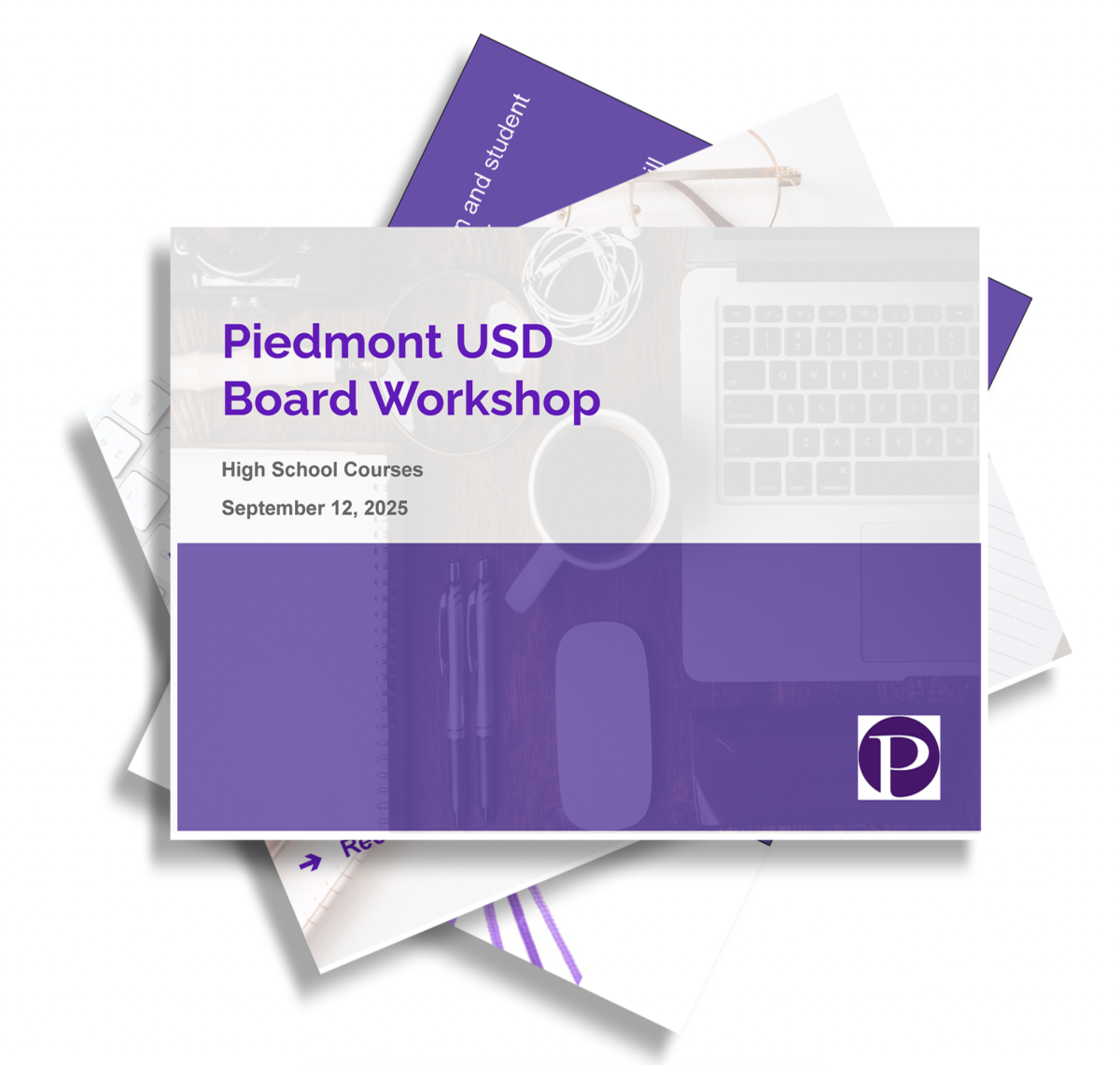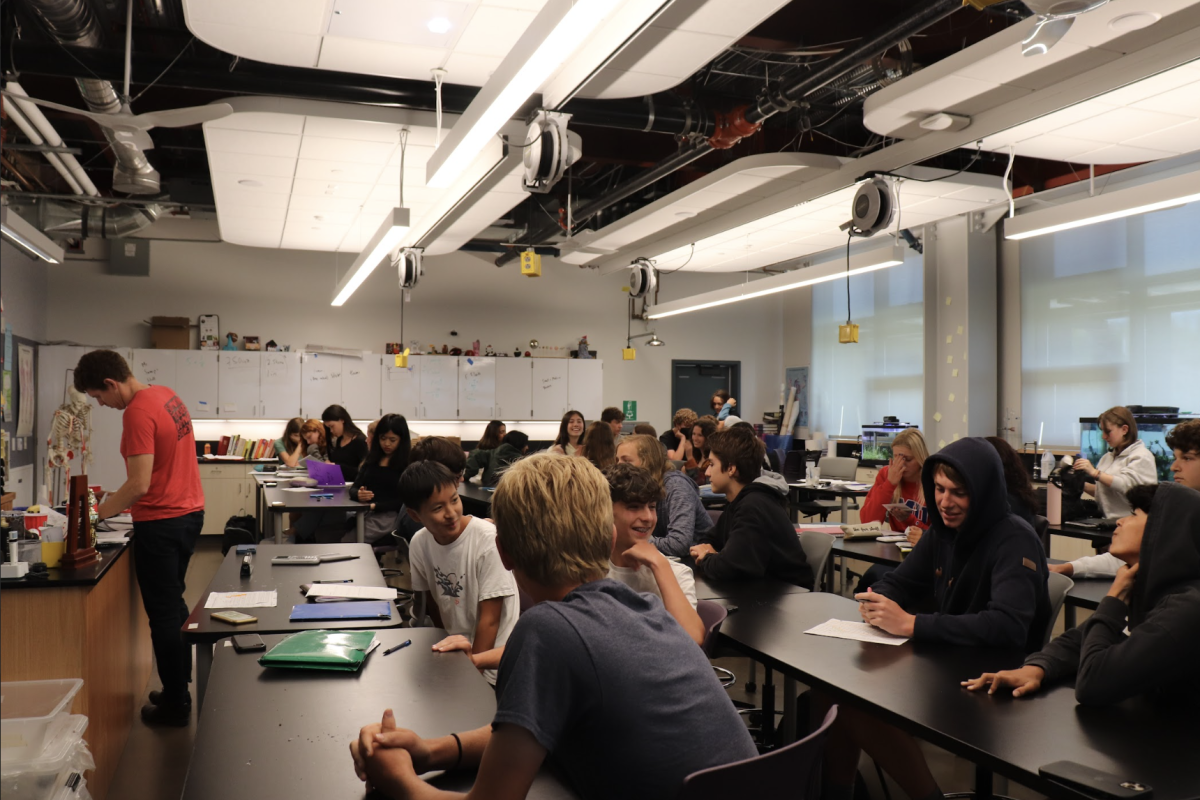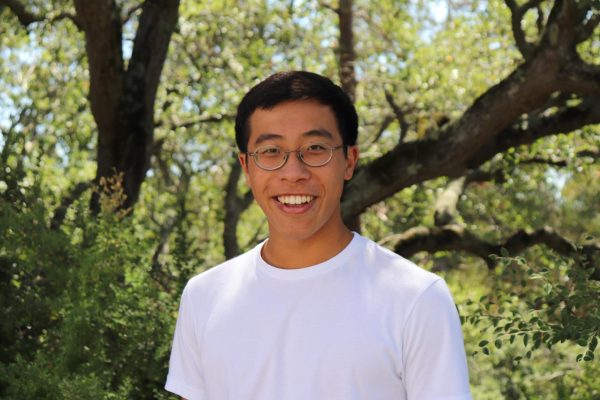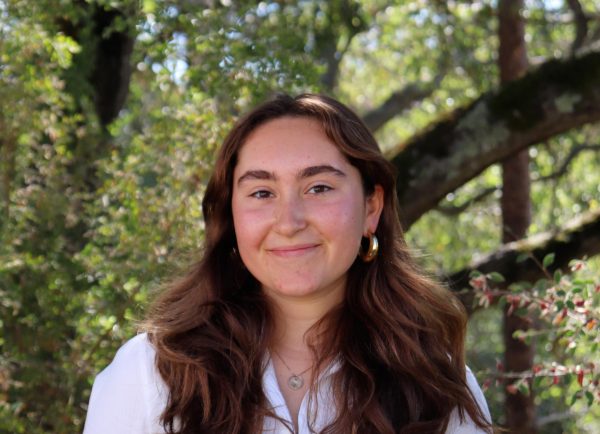For the first time in Piedmont history, Advanced Placement (AP) Chemistry and AP Physics II will be offered at PHS, starting in the 2024-25 school year.
On Sept. 27, the PUSD School Board voted unanimously to approve the new courses, following a proposal presented to the Board by PHS chemistry teacher John Savage and PHS physics teacher Marna Chamberlain on Sept. 13.
According to collegeboard.org, AP is a curriculum developed by the College Board which allows students to learn college level content while still in high school. In addition, AP tests at the end of the year can provide students with varying degrees of college credits depending on students’ scores.
AP Chemistry and AP Physics II are second level courses that students would have to take after first level courses. The first level courses available at PHS for chemistry are Honors Chemistry and Chemistry in the Earth System. The first level physics courses offered at PHS are Physics of the Universe and Honors Physics of the Universe.
Savage said the AP courses would need to be second level because of the significant amount of information in the AP curriculum that even the Honors courses don’t cover. Students who’ve completed Honors won’t have fulfilled the AP Chemistry curriculum or be fully prepared for the AP Chemistry test, because the Honors curriculum addresses topics not included in the AP curriculum.
“There would be some overlap and it doesn’t matter if you take Honors [chemistry] or normal before AP Chemistry. However, there’s a huge amount of material that would be new to students or that AP Chemistry would go deeper into,” Savage said.
For decades members of the community have called to instate these classes at PHS, Savage said. Over the past few years, parents held multiple meetings with the science department and PHS administration asking for them to propose the class.
“The calls to offer this course have increased significantly over the past two or three years,” Savage said. Savage has provided preparation lessons for the AP Chemistry exam during lunch in recent years. He said that, recently, more students have signed up, filling up multiple classrooms almost to an overwhelming amount.
“The AP Chemistry [test] felt very difficult, even with Mr. Savage’s lunch sessions. I think having it as a class might have helped prepare me more,” said former Honors Chemistry student and senior Ken Sibal.
On the other hand, there are other members of the community questioning the necessity of adding the two new AP courses.
“There’s already normal and honors classes for chemistry and physics so I’m not sure why we’d need another level,” junior Julia Baysinger said.
After discussing privately, PHS administration and the science department have decided to finally act on the push.
“I have heard students, staff, parents and community members highlight the importance of opportunities for students to pursue a rigorous academic program,” PUSD Superintendent Jennifer Hawn said in the Sept. 25 Piedmont Pulse newsletter.
Savage and Chamberlain worked with Assistant Superintendent Ariel Dolowich and PHS Principal Sukanya Goswami to compile a presentation in favor of offering these new classes.. The two AP courses will be added to the course catalog as options for students to select in the upcoming 2024-25 school year.
There are many details to adding the courses that were considered in the decision to offer these classes.
“It is a very complicated decision with all the other factors that we’ll really have to look into,” Goswami said. Included in these factors are the student enrollment and interest.
While many students expressed interest in these courses, the district would have to wait to see the full number of students enrolled for the upcoming school year before they can work out the master schedule and make decisions on the number of sections and finding teachers.
“There is research that points to the benefits and drawbacks of AP courses, suggesting both ends of the spectrum are true,” Hawn said.
Being able to find teachers is one drawback, Savage said, because PHS is limited by its size.
“With a high school this size we face serious limits on what we can offer. [The school] can’t offer everything,” Savage said.
Savage said he would not be able to teach AP Chemistry in addition to his current course load. Instead, the school would have to find another teacher.
Savage said there are also questions about how many students would actually take the class, which would change the future plans for maintaining the course.
Goswami said that, in the same way as Savage, Chamberlain would not have the scope to teach AP Physics II herself.
“There is an interest to create that opportunity, but whether the opportunity becomes a reality depends on many practical things,” Goswami said.































